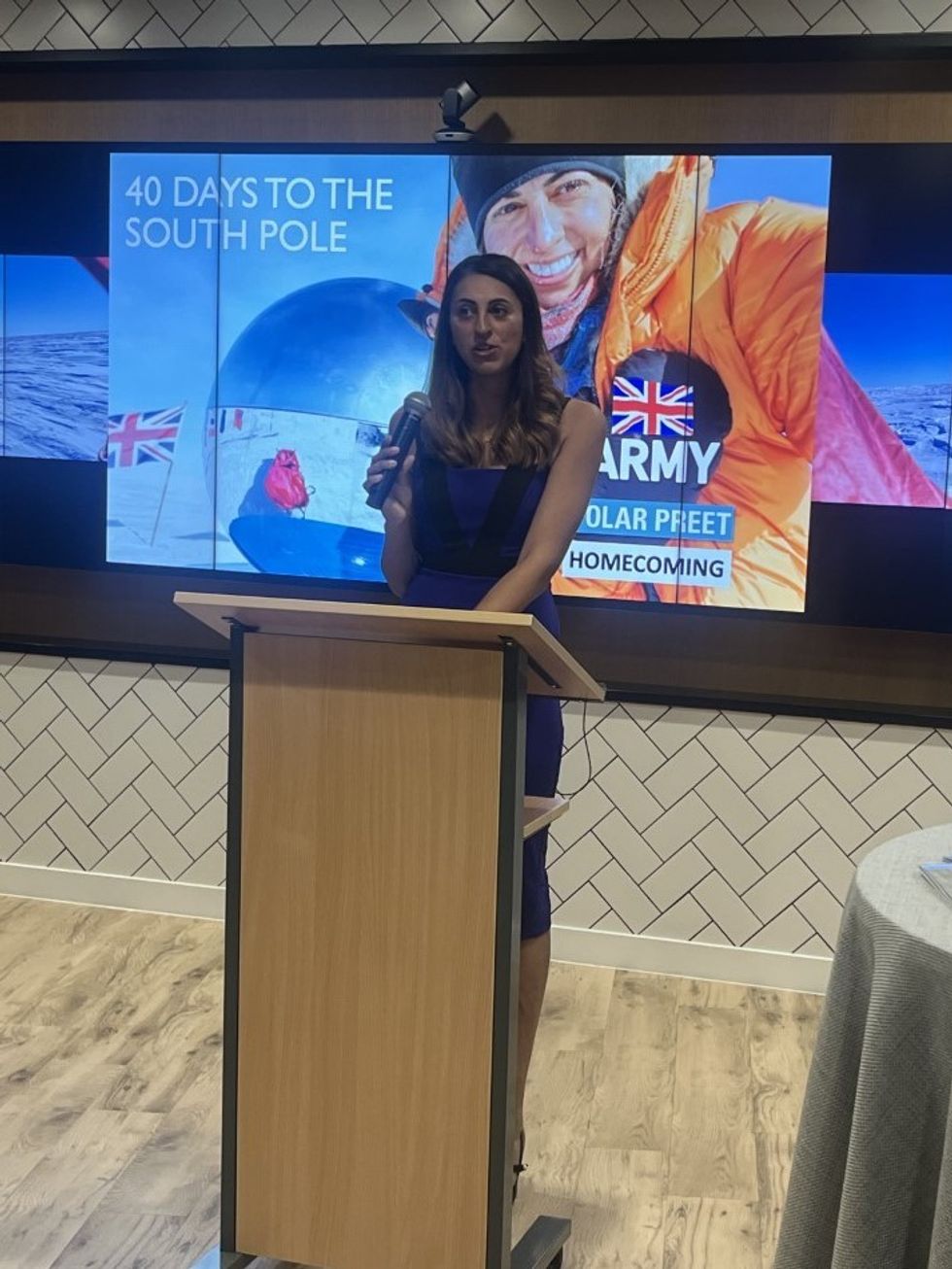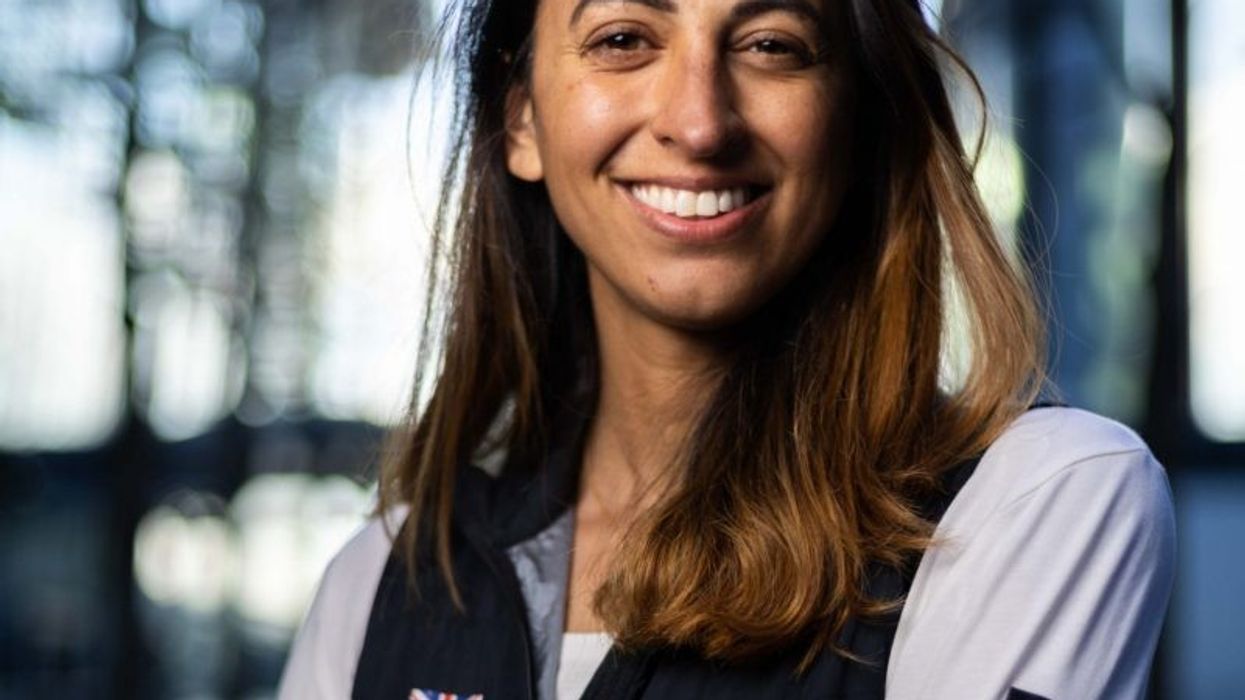What British Army captain Harpreet Chandi would tell her younger self about dealing with racism
AN ASIAN Army officer who became the first ‘woman of colour’ to complete a solo trek across Antarctica last month, has revealed it took her many years to feel comfortable with the term.
Captain Harpreet Chandi, also known as Polar Preet, accomplished her mission on January 3, with her historic expedition covered by British and international media.
At a homecoming event last Thursday (27) at The Shard in London, Derby-born Chandi said, “A woman of colour. I’m so glad I finally felt comfortable to use this term, which was only a few months before I left. I thought about what had been stopping me and it was how others may perceive it. But then, why would I change the way I identify based on other people’s perceptions?”

She added, “I don’t think I have always known how important representation is, but when you first see it, it changes so much.
“I remember how excited I was first seeing a south Asian presenter on the TV. I cannot explain the feeling I get when I see somebody who looks like me pushing their boundaries. It makes me feel like I can do more.
“I listened to a lot of south Asian authors on audio books and it felt so powerful to me. I wondered if their voices had ever been on the continent before. Listening to (broadcaster and presenter) Anita Rani’s voice, listening to books such as The Good Immigrant, it made me feel so proud that I had their voices with me.”
The Indian-origin officer battled bouts of sickness and diarrhoea as she tackled the harsh conditions of Antarctica, where temperatures were -50°C and wind speeds up to 60 mph, the Forces Net reported.

Chandi, 32, described why embracing one’s identity mattered and recalled how people said she didn’t “look like a Polar explorer”.
“A lot of people ask why it is mentioned at all. Are we not equal? I have seen it on numerous occasions in the comments.
“To me, equality never meant we are all the same. After all, nobody questions it when my job role as an Army officer is mentioned, or my age or that I am a female. So why can I not embrace the colour of my skin?
“It is important to me to show others they can do anything they want. I was told I do not look like a polar explorer; I certainly didn’t look anything like the Google images that showed up when I typed it in three years ago.
“I typed it in again yesterday and I saw a picture of myself,” she said. Chandi works at a medical regiment in the northwest of England and her primary role is to organise and validate training for medics in the Army as a clinical training officer.
She is also completing her master’s degree in sports and exercise medicine, part-time, at Queen Mary’s University in London.
Growing up in England, Chandi said she experienced racism and described why representation was important. Recalling an incident from her past, she said,
“Representation is so powerful. I know everybody has different experiences and it is difficult to sometimes understand.
“I will never forget feeling ashamed when I was 13, having eggs thrown at me from a bedroom window when I was with my uncle who was in traditional clothing. Instead of putting my head down and not saying a word about it, I wish I could go back and hold his hand and talk about how it had made me feel. That uncle sadly passed away in his 50s in an accident, so I won’t ever get that opportunity, but I hope he is proud of me now.”
Chandi admitted that in the past she would have shied away from such conversations, but not any more. She said she was now a proud woman of colour.
“There was a point when I didn’t think it was important to talk about (it) – if anything, I would have shied away from these types of conversations.
“But if I was able to talk to my younger self now, I would tell her she’s not alone. I would tell her she comes from a rich culture and her brown skin is beautiful.
“As a woman of colour, I am beyond proud of the colour of my skin, my culture, my heritage, something that is a huge part of who I am.
“And I have so many positive stories too. When I was on operational tour in South Sudan, the Indian Army treated me as though I was family and would invite me to dinner every week,” Chandi said.
She has her eye on her next expedition – to cross Antarctica coast-to-coast solo.
“My aim is to do a full crossing, so solo unsupported again. It’ll be a little bit longer and probably a little bit tougher,” she told the BBC after she returned home last month.
(With additional reporting by Sattwik Biswal)




